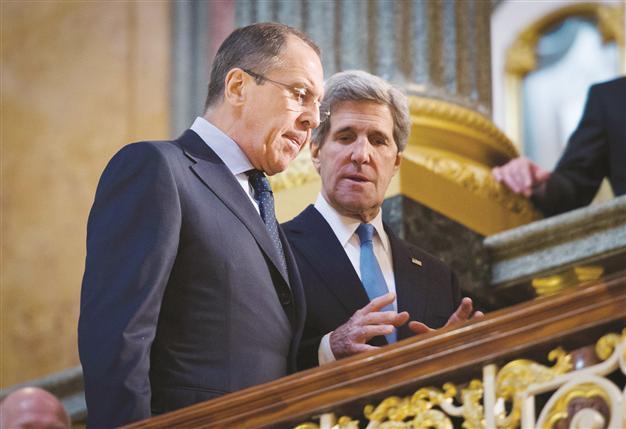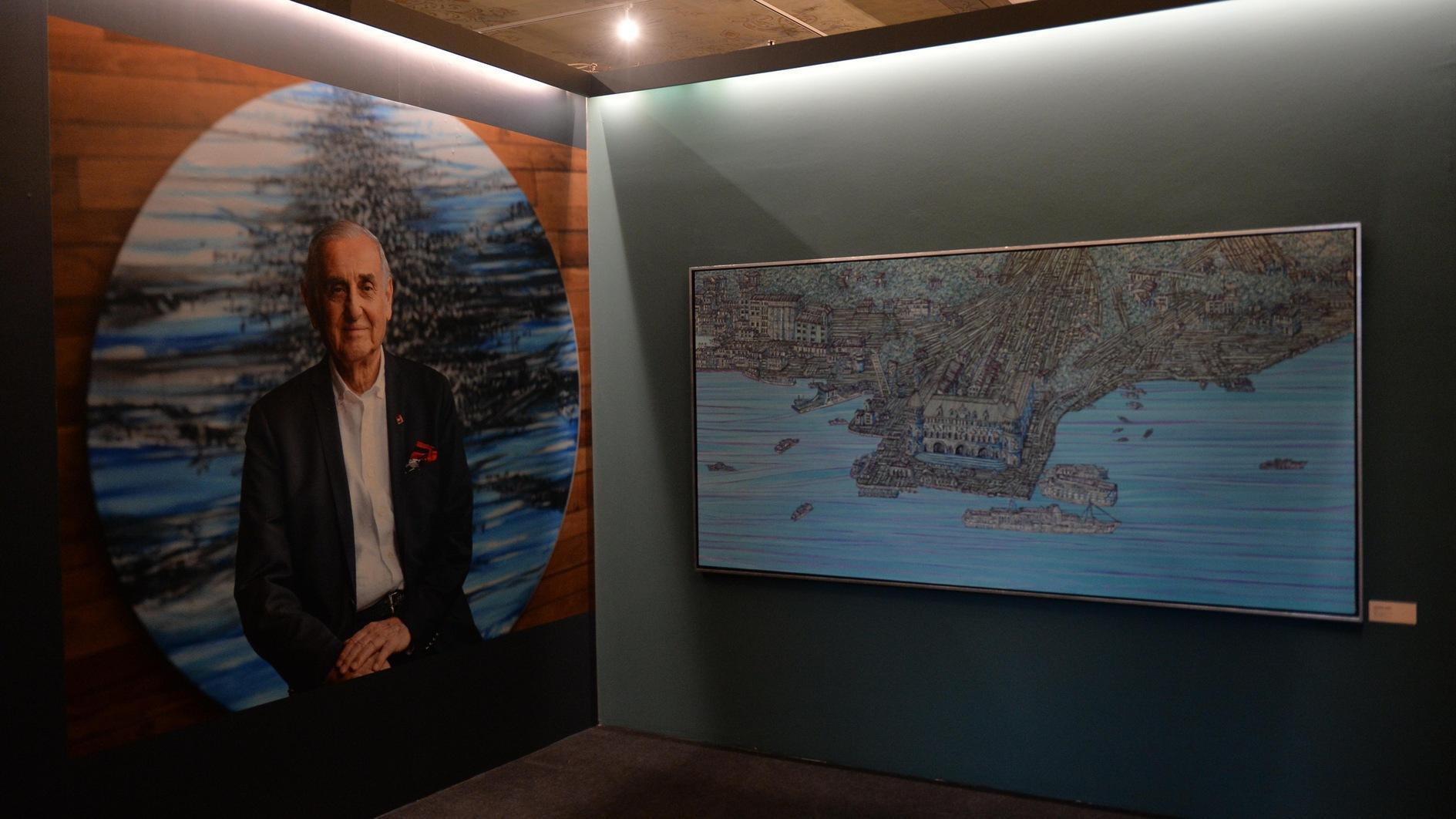NATO FMs to talk Syria
BRUSSELS

Russian Foreign Minister Sergei Lavrov (L) speaks to US Secretary of State John Kerry following a group photograph for officials ahead of a recent G-8 foreign ministers meeting in London to discuss the situation in Syria. AFP photo
NATO foreign ministers will gather today to discuss the Syrian crisis during their regular spring meeting at the alliance’s headquarters in Brussels, a day after the European Union lifted its oil embargo on Syria.The foreign ministers will examine developments in the Middle East and North Africa and take stock of the alliance’s Patriot deployment in Turkey. Turkey will be represented by Foreign Minister Ahmet Davutoğlu at the gathering.
At a separate meeting of the NATO-Russia Council (NRC), which will include the participation of Russian Foreign Minister Sergei Lavrov, ministers are expected to discuss closer practical cooperation, as well as global security issues, including Afghanistan and North Korea.
Lavrov said he and U.S. Secretary of State John Kerry would also discuss ways to promote a peace process in Syria at talks on the sidelines of the meeting.
“We will discuss what we, Russia and the United States, can do to convince those who ... are resisting the peace process to step onto the path of implementing the Geneva agreements,” Lavrov said, in reference to a communiqué reached last year to move toward a transition government in Syria.
Lavrov said that in a telephone conversation with Kerry on April 20, “I sensed confirmation of the intention ... to seek as swift as possible a political solution.”
Meanwhile, the EU’s 27 foreign ministers gathered yesterday for a meeting in Luxembourg to lift the bloc’s oil embargo on Syria, which marks the first relaxing of its sanctions in two years. The move aims to provide more economic support to the forces fighting to oust President Bashar al-Assad’s government. The oil exports could open an important revenue stream for Syria’s opposition, even though it is still unclear when and how much crude could be exported.
Some EU members, such as Britain and France, are also pushing to lift the bloc’s arms embargo against Syria to allow weapons shipments to the rebels. But other major EU players, such as Germany, remain opposed to that step, fearing it might set off a regional arms race and deepen the conflict.
British Foreign Secretary William Hague said April 21 that EU foreign ministers would in the coming weeks discuss the question again. The arms embargo expires May 30, and EU foreign ministers are not expected to make a decision on it before their next meeting in May, EU officials said.
Russia warned the EU not to lift an arms embargo. Lavrov said an embargo was unnecessary in the first place because such supplies were prohibited by international law.
If the embargo is removed, “the international obligations of the EU countries, which prohibit supplies of arms and ammunition to nongovernment actors, are not going anywhere,” he said at a news briefing after talks with his Guinean counterpart.
















